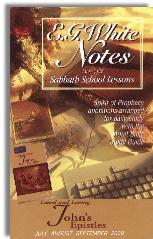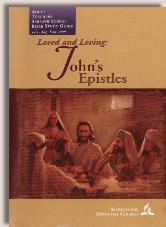|
||||||||||||||
Commentary on "Walking in the Light:
Keeping His Commandments"
Day 6: Thursday, July 23, 2009
Overview
The writer states that our love for God will be manifested when we keep His Commandments ( the 10 Commandments). The second part of that is love toward our fellow Christians. We can’t hate our brother and be walking in the light, referring to the Christian community specifically. The term “hate” is discussed. It’s not a word we use often, we tend to prefer “irritated” or “offended”, but the Bible used it in a number of places. How is it used and how is it to be understood in the context of the verses given? (Matt. 6:24; 24:9, 10; Luke 14:26; John 3:20)
Problems
The New Testament is clear that our love for God will be manifested in Jesus’ new commandment to love our brother and neighbor as ourselves, not by keeping the Old Testament 10 Commandments. It’s true that if you hate a brother, you’re not walking in the light, but in darkness. In defining the word “hate”, the biblical contexts seem to suggest that it’s not “an extreme emotional response” but that they are mutually exclusive. They talk about things that are “either/or”. The point is made that if you’re fully devoted to one, you can’t be fully devoted to the other—one will take a back seat to the other. In Luke 14:26, the expression of “hating your family” means that our own comfort and satisfaction in them must be swallowed up in our love for Christ, not that the persons must be in any degree hated (by our emotional definition). We must give Christ the preference. There are many “gray areas” where we try to compromise, and clear-cut devotion to Christ gets lost in the murkiness of it all. Too often we try to sit on the fence and be politically correct.
Summary
- The biblical examples of “hate” used in this lesson illustrate that they’re either mutually exclusive or that Jesus must be the preference, no matter what the other option is.
- The term “hate” isn’t necessarily referring to an extreme emotional feeling.
- Our human nature wants to make gray areas where devotion to Christ should be obvious. It’s much more popular to be politically correct than to profess clear-cut opposition to things that are not in line with Christ or a Christian lifestyle.
Copyright 2008 BibleStudiesForAdventists.com. All rights reserved. Revised July 23, 2009. This website is published by Life Assurance Ministries, Glendale, Arizona, USA, the publisher of Proclamation! Magazine. Contact email: BibleStudiesForAdventists@gmail.com.
The Sabbath School Bible Study Guide and the corresponding E.G. White Notes are published by Pacific Press Publishing Association, which is owned and operated by the Seventh-day Adventist church. The current quarter's editions are pictured above.
Official Adventist Resources
Standard Edition Study Guide Week 4
Teacher's Edition Study Guide Week 4
Easy Reading Edition Study Guide Week 4
Search the Complete Published Ellen G. White Writings


